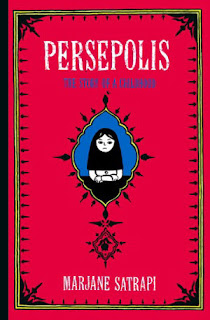Maiden's Tower on the Bosphorus
I haven't blogged here for awhile. It is not because I don't have a million things to say; I do. I have had to choose - between spending time learning Turkish - or blogging. Turkish won. It's not like I have a staff who can help me keep my blog going while I study: gidiyorum, gidiyorsun, gidiyor. The authenticity of my blog is that it is merely me, myself, and I.
I've had so much fun learning Turkish, I've put "learning another language" on my bucket list. Before becoming an "Empty Nest Expat" I was a typical American who could only speak English. I took 7th grade French, but I didn't learn much and never had any opportunity to use it. These days in America, a child could at least practice his Spanish with a native speaker on a daily basis. Like many in America, I found it hard to justify the time investment of learning another language with only the typical two weeks of vacation each year, usually spent within the continental United States. Take a look at
this infographic before embarking on a language journey.
Part of being an "Empty Nest Expat" though is to meet people on their turf and attempt to communicate with them in their language and hear, see and feel their point-of-view. My time in the Czech Republic rid me of the intimidation factor many Americans feel toward learning a foreign language because I met plenty of people who had learned not one, but two, and sometimes three or more foreign languages. If they could do it, why not me? This was such a perfect example of the importance of role models in our learning environment. Even though I came from a highly educated environment (my hometown is among the top three American cities for number of Ph.D.'s per capita), I don't often meet Americans who have learned a lot of languages, so it is easy to say and think,"I'll never learn." Nonsense.
America's political climate also encourages America to stay ignorant of the languages and world outside of America. When I was younger, if
a politician made fun of another politician for knowing a foreign language, it wouldn't have occured to me to wonder "why does that politician want to keep Americans afraid of and ignorant of the greater world? Is he afraid we'd all discover that our country is getting outperformed on several metrics?" This downscale English-only attitude may appeal to some aspects of the American public but only furthers to make the nation less competitive globally. Plus, when our citizens don't know other languages, we really do have to rely on our own political leaders for interpretation of events. It's healthy to have points of interaction with other countries at many levels, including citizen-to-citizen, and not just in our native language.
The first week I was in Turkey, I went to YouTube to look up
"10 words of survival Turkish." The two words for "thank you" take six syllables to say. YouTube was censored at the time in Turkey so I found this instead:
the 100 most useful words in Turkish. I learned them. My goal was to learn three words a day. Next came this resource, the free part of the website called
"Funky Turkish." I've also been using a book called
"Turkish in Three Months." I've lived here a year-and-a-half and I'm about halfway through.

The person who has really propelled me forward on my language learning journey is Aaron G. Myers, writer of the
Everyday Language Learner blog. Aaron is a former English language teacher who now is a self-employed language-learning coach. I signed up to take
his free 10-week course on self-directed language learning. I also won an hour of coaching from him through his Facebook page. These two wonderful educational tools have helped me realize and maintain my own enthusiasm for learning Turkish.
It doesn't hurt that Aaron also lives in Istanbul, and has taken the exact same journey I'm on - learning Turkish! He's created, for example, his own handcrafted audio site for people learning Turkish language to listen to again and again. It's called the
Turkish Listening Library. It would be fun to contribute my own Turkish audio someday.
Aaron Myer's blog and advice are suitable for any language. He has taught me about fun online language-learning resources that I did not know about. So far, I haven't spent a dime on the Turkish I have learned. I also have invested only the amount of time I would not regret spending on it while living here.
I started with a resource Aaron suggested as part of his 10-week journey:
LiveMocha.com. It's the largest language-learning website on the Internet. I first logged on on March 7th, 2011 and finished my final and 51st lesson on January 24, 2012.
Now I am beginning with a second online resource he recommended called
LingQ.com which will help me graduate from phrases to conversations. I am still a beginner but I can make myself understood with people who don't know English, even with my rudimentary grammer.
The first year of language learning is the hardest. I watched with interest as
Yearlyglot tried to learn Turkish in one year from Italy. I lived here in Turkey and I wasn't near that fast! At the end of the year, he admitted, "ok, so maybe that wasn't doable." But in watching people learn, I learned too. I also learned not to think of language as something binary: not knowing or flown-blown fluency. One of my Czech students told me he had a fine vacation in North American on 150 words of English. Getting to that level with online resources is fun and easy.
Did you know, when the creators of Esperanto were looking around the world for a suitable grammar for their newly-created language they chose Turkish grammar as the most logical? I found that, in itself, motivating!














 Who links to me?
Who links to me?
